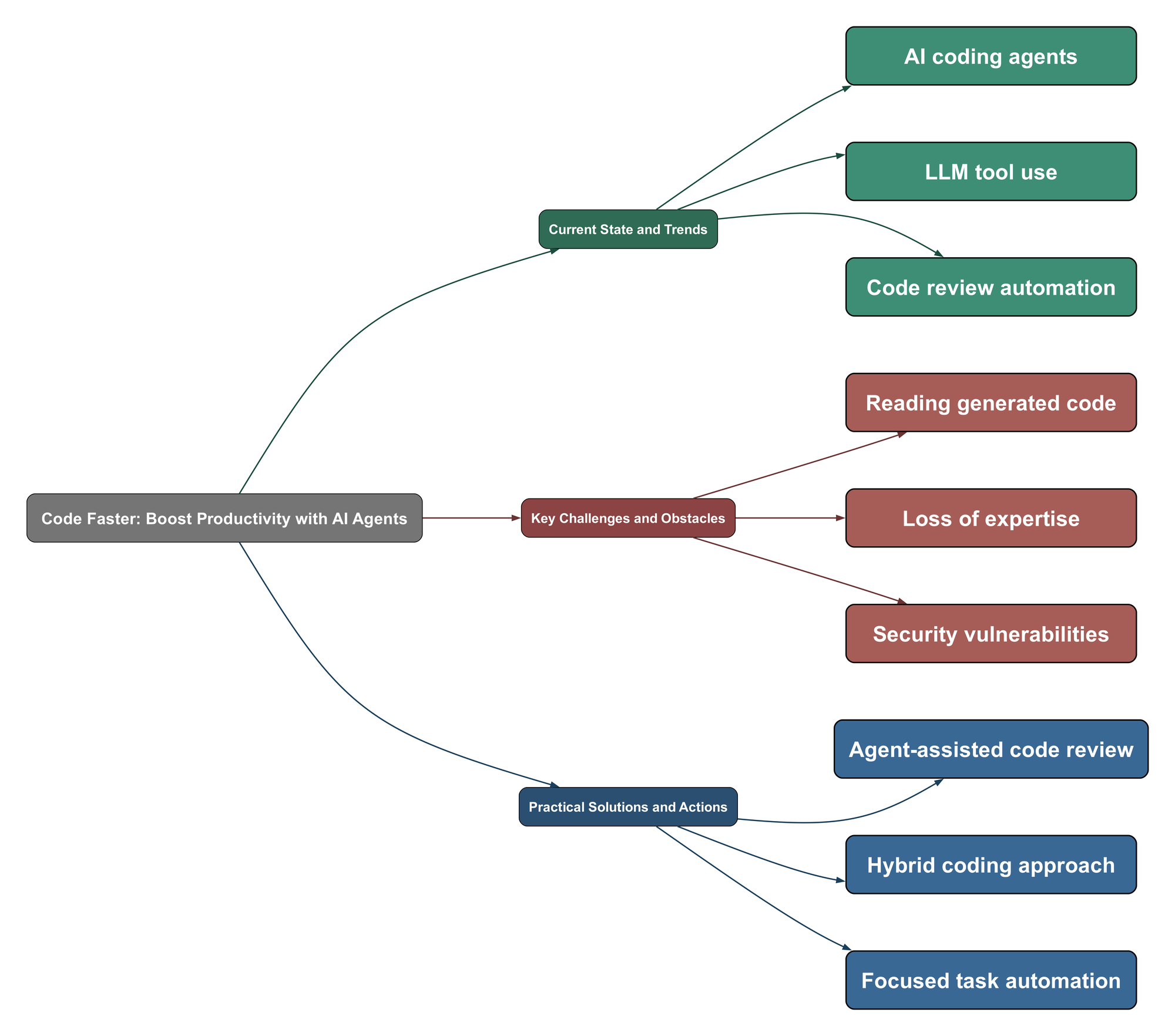Are you spending too much time wrestling with code instead of building amazing software? Imagine a world where AI handles the tedious tasks, freeing you to focus on the creative problem-solving that you love. AI-powered agents are rapidly changing the landscape of software development, but are they ready for prime time? Let’s explore the current state, the challenges, and the potential solutions.
Current State and Trends
- LLMs are now capable of driving agents effectively. The models of 2023 struggled, but 2025 models are optimized for tool use.
"The answer is a critical chunk of the work for making agents useful is in the training process of the underlying models. The LLMs of 2023 could not drive agents, the LLMs of 2025 are optimized for it."
- Containerization is emerging as a key technology for safely running agents in parallel.
"Last week Solomon Hykes (creator of Docker) open-sourced Container Use exactly for this reason, to let agents run in parallel safely."
- AI excels at specific coding tasks, such as CSS generation, unit test creation, and summarizing commits.
"Some of my favorite things to use AI for when coding… CSS: I don’t like working with CSS on any website ever… AI makes it a little fun since it can remember all the CSS hacks… Unit Tests: Farming out unit tests to AI is a fun little exercise."
- Code review may be the killer app for LLMs, offering a way to improve code quality and security.
"LLMs for code review, rather than code writing/design could be the killer feature. I think that code review has been broken for a while now, but this could be a way forward."
Key Challenges and Obstacles
- Reading and understanding agent-generated code can be a bottleneck.
"Maybe it’s because I only code for my own tools, but I still don’t understand the benefit of relying on someone/something else to write your code and then reading it, understand it, fixing it, etc."
- Over-reliance on agents can lead to a loss of expertise and understanding of the codebase.
"You want to prevent the system from spiraling with bad code, and you want to end up an expert in the system that’s produced."
- Agents may introduce bugs or security vulnerabilities if not carefully monitored.
"If everyone is just half-heartedly reviewing code, or using it as a soapbox for their individual preferences, using agents will completely fall apart as they can easily introduce serious security issues or performance hits."
- Explaining intent in natural language can be challenging and may not always produce the desired results.
"It seems like a lot of the work that the agents are doing is removing that and instead making you have to explain what you want in natural language and hope the LLM doesn’t introduce bugs"
Practical Solutions and Actions
- Use agents for code review to catch errors and improve code quality.
- Focus on tasks where AI excels, such as CSS generation, unit test creation, and summarizing commits.
- Combine agent-assisted coding with bespoke coding for optimal results.
- Invest time in learning how to effectively program with agents.
"I have put a lot of effort into learning how to program with agents. There was some up-front investment before the payoff… this stuff is really powerful, but you should probably expect that, if you want to get a lot of benefit out of it, there’s a learning curve."
- Monitor agent-generated code carefully to prevent spiraling.





